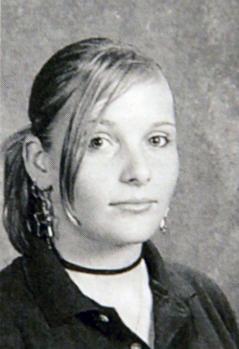|
|
|---|
Tuesday, August 3, 2010
Deming Bronson
Deming Bronson (July 8, 1894 – May 29, 1957) was a first lieutenant United States Army officer with Company H of the 364th Infantry Regiment, 91st Division. He received the United States military's highest award, the Medal of Honor, for his actions in World War I.
Deming Bronson was born on July 8, 1894, in Rhinelander, Wisconsin. The Bronson family moved to Seattle, Washinton from Wisconsin in 1903. They resided at 239 39th Avenue N on Capitol Hill. Deming attended the University of Washington and played Husky football from 1912 to 1916. He graduated with a degree in forestry. His friends and team-mates called him by his nickname - "Dick". He enlisted in the U.S. Army at the beginning of World War I.
After basic training, v was sent to France and was attached to Company H of the 364th Infantry Regiment, 91st Division. ON September 26, 1918, On the first day of the Meuse-Argonne Offensive, near the village of Eclisfontaine, 1st Lt. Deming Bronson was struck by an exploding enemy hand grenade, receiving deep cuts on his face and the back of his head, but he continued to fight and helped capture a German dugout from which they captured a large number of prisoners.
On the afternoon of the same day he was painfully wounded in the left arm by an enemy rifle bullet, and after Disregarding these instructions, 1st Lt. Bronson remained on duty with his company through the night although suffering from severe pain and shock.He was shot in the arm later that day, after receiving first aid treatment Lt. Bronson was directed to the rear. Once again, he refused medical evacuation and remained with his unit through the night.
The next morning, after joining a company which was on the front line of an attack, he assisted in the capture an enemy machine gun position and the town of Eclisfontaine. As the company withdrew, he was wounded by an artillery shell. This was the third time he had been wounded in less than 24 hours. Again Deming Bronson refused to be evacuated and remained with his men all night. Lt. Deming Bronson recovered from his injuries.
Other WWI veterans from Seattle, led the 11-year campaign for recognition of Bronson's heroism. First Lieutenant Deming Bronson was finally awarded the Medal of Honor in the office of President Herbert Hoover on November 19, 1929.
After the war, Deming Bronson became an executive with a paint company in Ohio and New Jersey, and later worked in the family lumber business in Oregon.
Medal Of Honor winner Deming Bronson died May 29, 1957, at the age of 62, and is buried at Arlington National Cemetery in Arlington, Virginia. His grave can be found in Section 30, Lot 500.
Medal Of Honor
Rank and organization:
irst Lieutenant,
U.S. Army, Company H,
364th Infantry, 91st Division.
Place and date:
Near Eclisfontaine, France,
eptember 26-27 , 1918.
Entered service at:
Seattle, Washington.
Born: July 8, 1894,
Rhinelander, Wisconsin.
G.O. No.:
12 W.D., 1929.
Citation:
For conspicuous gallantry and intrepidity above and beyond the call of duty in action with the enemy. On the morning of 26 September, during the advance of the 364th Infantry, 1st Lt. Bronson was struck by an exploding enemy handgrenade, receiving deep cuts on his face and the back of his head. He nevertheless participated in the action which resulted in the capture of an enemy dugout from which a great number of prisoners were taken. This was effected with difficulty and under extremely hazardous conditions because it was necessary to advance without the advantage of cover and, from an exposed position, throw handgrenades and phosphorous bombs to compel the enemy to surrender. On the afternoon of the same day he was painfully wounded in the left arm by an enemy rifle bullet, and after receiving first aid treatment he was directed to the rear.
Disregarding these instructions, 1st Lt. Bronson remained on duty with his company through the night although suffering from severe pain and shock. On the morning of 27 September, his regiment resumed its attack, the object being the village of Eclisfontaine. Company H, to which 1st Lt. Bronson was assigned, was left in support of the attacking line, Company E being in the line. He gallantly joined that company in spite of his wounds and engaged with it in the capture of the village. After the capture he remained with Company E and participated with it in the capture of an enemy machinegun, he himself killing the enemy gunner. Shortly after this encounter the company was compelled to retire due to the heavy enemy artillery barrage. During this retirement 1st Lt. Bronson, who was the last man to leave the advanced position, was again wounded in both arms by an enemy high-explosive shell. He was then assisted to cover by another officer who applied first aid. Although bleeding profusely and faint from the loss of blood, 1st Lt. Bronson remained with the survivors of the company throughout the night of the second day, refusing to go to the rear for treatment.
His conspicuous gallantry and spirit of self-sacrifice were a source of great inspiration to the members of the entire command.
0 Comments:
Subscribe to:
Post Comments (Atom)





















